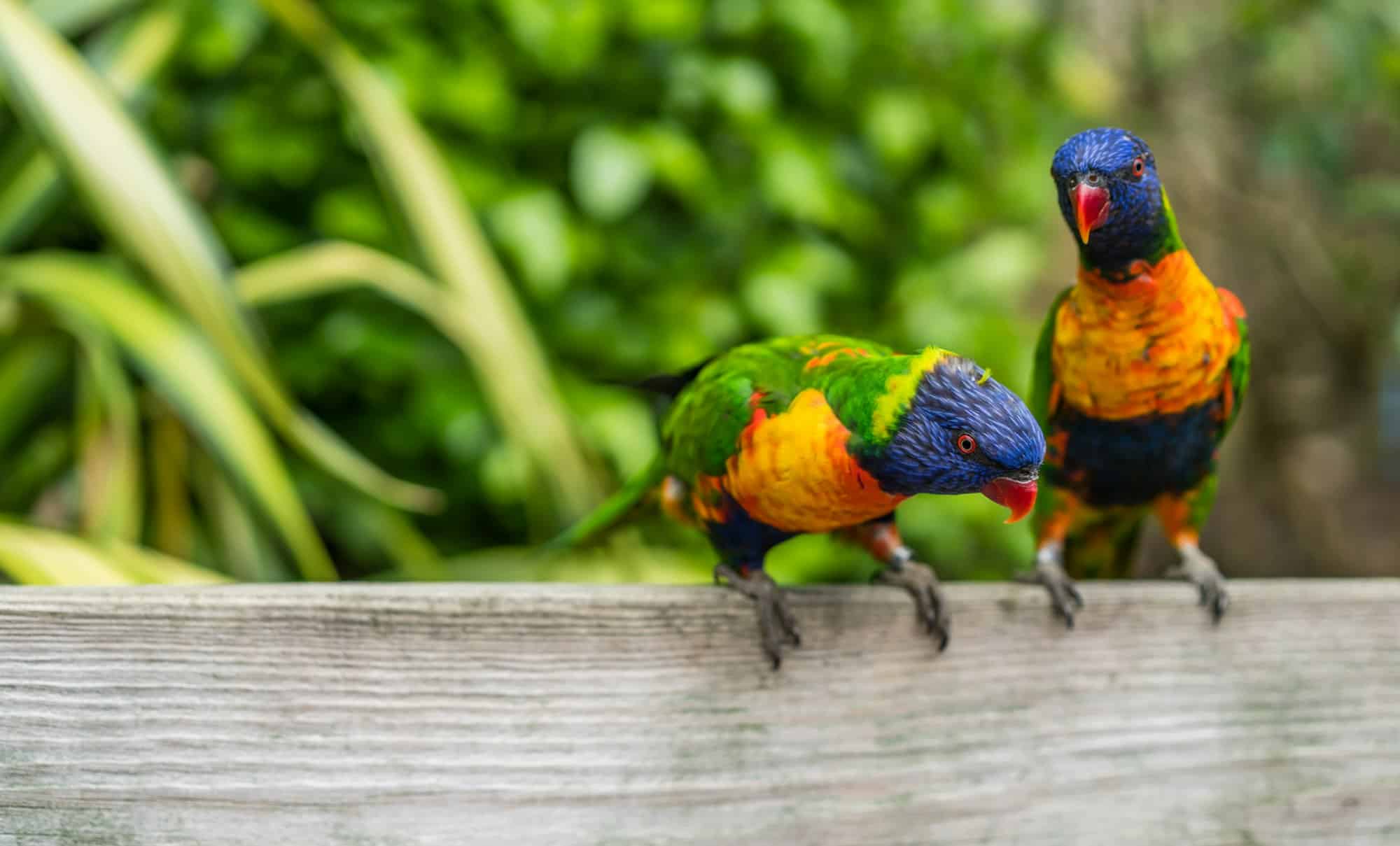What Are the Best Low-Calorie Treat Options for Overweight Parrots?

Just like humans, parrots have a propensity towards unhealthy weight gain when their diet is not well-managed. Overweight parrots can face a host of health complications, such as heart disease, arthritis, liver damage, or even decreased lifespan. Thus, it becomes essential to ensure that their diet is nutritious, balanced, and low in calories, particularly the treats that they receive. In this detailed guide, we’ll explore the different types of low-calorie treat options that are best suited for overweight parrots, while also discussing the overall dietary needs of these vibrant, intelligent birds.
The Importance of a Balanced Diet for Parrots
When it comes to providing the right diet, parrots are a unique category. Unlike other pet birds, parrots need a diverse diet that includes seeds, pellets, fruits, vegetables, and nuts. The balance of these food groups is crucial for their overall health and well-being.
Avez-vous vu cela : Which Small Rodents Make the Best Companions for Gentle Children?
A common misconception is that seeds are an adequate diet for parrots. While seeds are an essential part of their diet, relying solely on seeds can result in an overweight parrot. Many seeds are high in fat and not nutritionally complete. Moreover, parrots often pick out their favorite seeds, leaving the rest behind, which can result in a nutrient deficit.
Pellets provide a balanced diet and are often fortified with essential vitamins and minerals. They should constitute about 50% of a parrot’s diet. However, not all parrots will accept pellets, particularly if they are used to a seed-only diet.
A lire aussi : How to Rehabilitate a Dog with a Fear of Car Rides After a Traumatic Experience?
Fruits and vegetables provide essential vitamins, minerals, and fiber and should make up 30-40% of the parrot’s diet. However, it’s worth noting that not all fruits and vegetables are good for parrots. For example, avocado and chocolate are toxic to these birds.
Finally, nuts are a favorite treat for many parrots, but they are high in fats and should be given sparingly.
Low-Calorie Treats for Overweight Parrots
Now that we’ve established the importance of a balanced diet, let’s dive into the specifics of low-calorie treats for overweight parrots. Being overweight is often a result of high-fat diets, which include too many seeds and nuts.
Vegetables such as carrots, broccoli, cucumbers, and bell peppers are excellent low-calorie treats. They are rich in nutrients, low in calories, and high in fiber that aids in digestion.
Fruits like apples, oranges, and bananas can also be given as treats. However, they contain fructose (a type of sugar), so they should be offered in moderation.
Some parrots might enjoy cooked legumes and grains like quinoa and lentils. They are low in fat and high in protein, making them a healthy alternative to high-fat seeds and nuts.
Remember, while these treats are healthier, they should still make up only a small part of the parrot’s overall diet.
Transitioning Your Parrot to a Healthier Diet
Switching your feathered friend’s diet from high-fat seeds and nuts to healthier alternatives can be a challenge. Parrots, like humans, can resist dietary changes, especially if they are used to certain foods. The key is to make the transition gradual and persistent.
Start by introducing small amounts of new foods alongside their regular options. This could be a slice of carrot or apple every other day. Take care to monitor what your parrot eats and adjust accordingly.
It might take some time for your parrot to accept these new foods. Remember, patience is crucial in this process. Consult with a vet or a bird specialist if you face difficulties or if your parrot refuses to eat the new foods.
Hydration: An Often Overlooked Aspect of a Parrot’s Diet
Although our focus so far has been on food, we cannot neglect the role of water in a parrot’s diet. Parrots must have access to fresh, clean water at all times. Water aids digestion, keeps them hydrated, and can help in weight management.
Change their water daily to prevent bacterial growth and remove any food particles that might have fallen in. Some parrots might enjoy bathing in their water dish, so consider providing a separate dish for this purpose.
In conclusion, managing the diet of your overweight parrot involves more than just reducing their food intake. It means providing them with nutritious, low-calorie alternatives that will improve their overall health and well-being. Remember, every parrot is unique, so what works for one might not work for another. Stay patient, persistent, and positive, and you will see an improvement in your parrot’s health and vitality.
Tailoring Your Parrot’s Diet Based on Species
Understanding the nutritional requirements of different parrot species is crucial in managing their diet effectively. Different species of parrots have diverse dietary needs based on their size, metabolism, and natural habitat. For example, the diet of smaller parrot species like budgerigars will differ from larger ones like African grey parrots.
African grey parrots, known for their exceptional intelligence and longevity, require a diet rich in calcium and vitamin A. These can be found in dark leafy greens, sweet potatoes, and carrots. African greys are prone to calcium deficiencies, making these vegetables excellent low-calorie treat options.
Conversely, budgerigars or budgies are much smaller and require a high-energy diet due to their fast metabolism. Budgies can benefit from a varied diet that includes a mix of seeds, pellets, fruits, and vegetables. Low-fat seeds like millet can be used as training treats to encourage healthy eating habits.
Cockatoos, another common pet bird, are known for their love for seeds and nuts. However, these are high in fat, and their consumption should be regulated. Instead, vegetables like broccoli, spinach, and bell peppers can be included in their diet, providing essential vitamins and minerals without the added calories.
Understanding the specific dietary needs of your bird will require research and consultation with a bird specialist or vet. It can make a significant difference in managing their weight and avoiding health issues.
Engaging Your Parrots Through Play and Enrichment
Parrots, apart from being great companions, are known for their intelligence and need for stimulation. One way to promote a healthier lifestyle and manage weight in parrots is through play and enrichment.
Interactive toys can be used to encourage physical activity in parrots. For example, puzzle toys that require the bird to solve a problem to get a treat can keep them mentally and physically engaged. However, instead of high-fat seeds or nuts, try using low-fat, nutritious fruits or vegetables as rewards.
Just like humans, parrots also benefit from exercise. Flying, climbing, or even just exploring their surroundings can help burn calories and keep them fit. A suitable play area with bird-safe toys and perches can provide ample opportunities for exercise.
Finally, remember that changing a parrot’s diet and lifestyle is a gradual process. Your bird may take time to adjust to new foods and activities. Always keep an eye on their behavior and consult a vet if you notice anything unusual.
In Conclusion: A Holistic Approach to Your Parrot’s Health
Caring for an overweight parrot requires a holistic approach that includes a balanced diet, regular exercise, mental stimulation, and regular check-ups with a vet. By introducing low-calorie fruits and vegetables, reducing high-fat seeds and nuts, and engaging them in play, you can significantly improve their quality of life and prevent health issues.
Remember, every parrot is unique, and what works for one parrot might not work for another. Patience and persistence are key. With time, positive changes in your parrot’s diet and lifestyle will lead to increased vitality and a healthier, happier pet bird.
